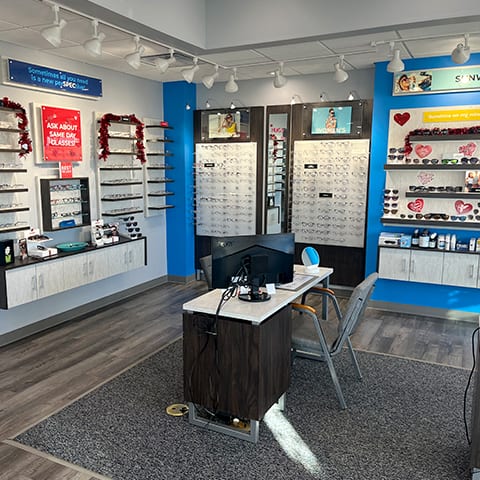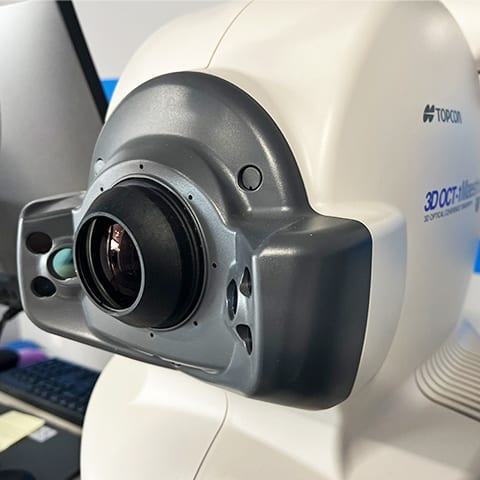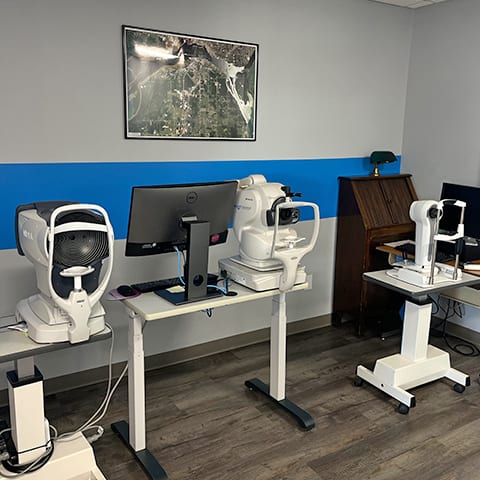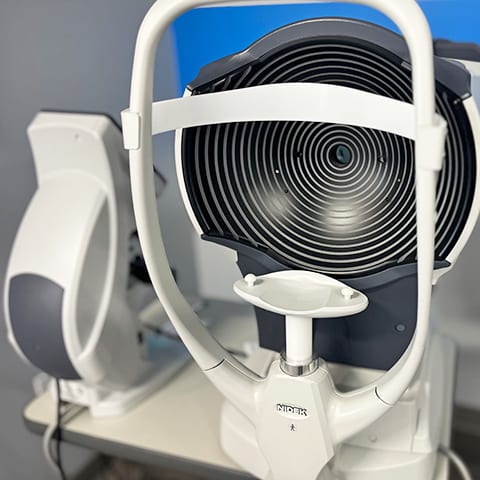Protect Your Vision From Diabetic Complications
Just over 1 in 10 Americans lives with diabetes—that’s more than 34 million people. Diabetes can impact your overall health, including your vision. That’s why we offer diabetic eye exams to help monitor your vision for possible issues.
Optometrists are specially positioned to assist with the diabetes epidemic. In many cases, it’s during an eye exam that the first signs of diabetes are detected.
People are often aware of the many ways that diabetes impacts overall health but don’t always consider its ocular impacts. Diabetes is a leading cause of blindness in adults.
People with diabetes are at an increased risk of developing eye diseases and conditions like glaucoma, cataracts, and diabetic retinopathy. We recommend that those with diabetes have annual, comprehensive eye exams. Taking a proactive approach to health is important, especially if you’re dealing with diabetes.
Book your diabetic eye appointment today, and let us help you preserve your sight.
Book AppointmentWhat Is Diabetes?
Diabetes is a disease that impacts the production of insulin, a hormone that regulates your body’s blood sugar levels.
When you eat, most of your food is broken down into glucose (sugar) and travels through the bloodstream. An increase in the amount of sugar in the bloodstream signals the pancreas to release insulin, which lets the sugar into your cells.
If you have diabetes, your body either does not make insulin or doesn’t use it properly.
Over time, elevated blood sugar levels can lead to various health issues, not the least of which include vision problems. Even if you don’t notice any change in your vision, it’s still important to have your eyes examined regularly. Book your appointment today.
How Does Diabetes Affect Vision?
Diabetes can lead to serious vision problems and even blindness, so it’s important to book an annual eye exam to check for any changes. Visual issues caused by diabetes may include the following.
Blurry Vision
When your body adjusts to diabetes medication or changes in your health routine, it can lead to blurry vision.
Elevated blood sugar can lead to a buildup of fluid in the eyes. Normally, the extra fluid is temporary, and your eyes will return to normal as your blood sugar stabilizes. But you should still visit your optometrist to rule out more serious issues.
Diabetic Retinopathy
Over half of people with diabetes may have retinopathy at some point. Diabetic retinopathy often progresses slowly and may not present visible symptoms until irreversible vision loss occurs. The blood vessels in your retina swell as blood sugar levels elevate.
In the early stages of diabetic retinopathy, blurry vision is a common symptom. As the condition progresses, it gets more serious. Blood vessels break and bleed, leaking into the macula and causing vision loss.
Diabetic Macular Edema
Diabetic macular edema occurs when the macula swells. The macula is responsible for your central vision, so impairment can impact the ability to read, write, drive, and recognize faces. This condition is quite serious and can lead to blindness.
Book Your Diabetic Eye Exam Today
If you have diabetes, it is imperative that you get your eyes examined regularly. Close examination of the retina can help to detect any early signs of serious vision problems.
During a diabetic eye exam, we may dilate your pupils to see the back of the eye and its structures more clearly. Dilation is a simple procedure: we place a few drops into the eyes, and the pupils widen temporarily.
You may be more sensitive to sunlight after a dilated eye exam, so we suggest bringing sunglasses to your appointment.
Book AppointmentOur Location
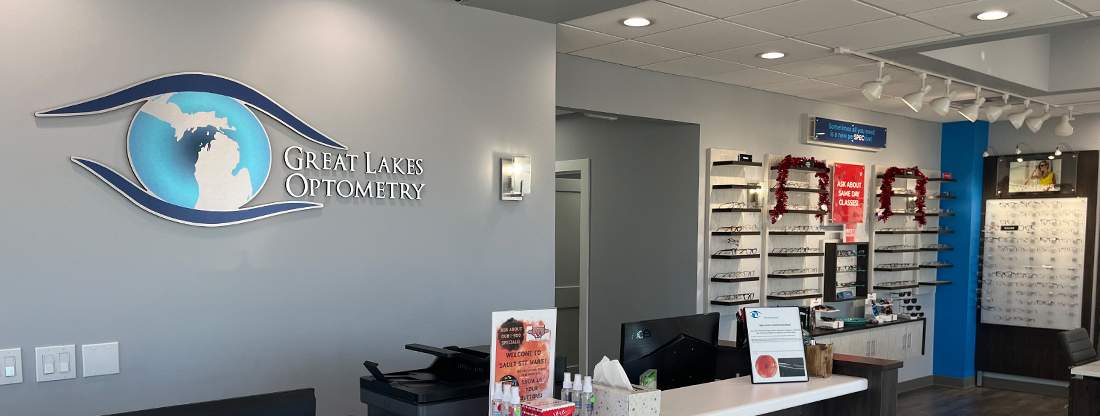
Our Address
- 2237 Ashmun Street
- Sault Ste. Marie, MI 49783
Contact Information
- Phone: 906-635-9600
- Fax: 906-635-1077
- Email: [email protected]
Our Hours
Hours
- Monday: 8:00 AM – 5:00 PM
- Tuesday: 8:00 AM – 5:00 PM
- Wednesday: 8:00 AM – 5:00 PM
- Thursday: 8:00 AM – 5:00 PM
- Friday: 8:00 AM – 4:00 PM
- Saturday: Closed
- Sunday: Closed
Our Brands











